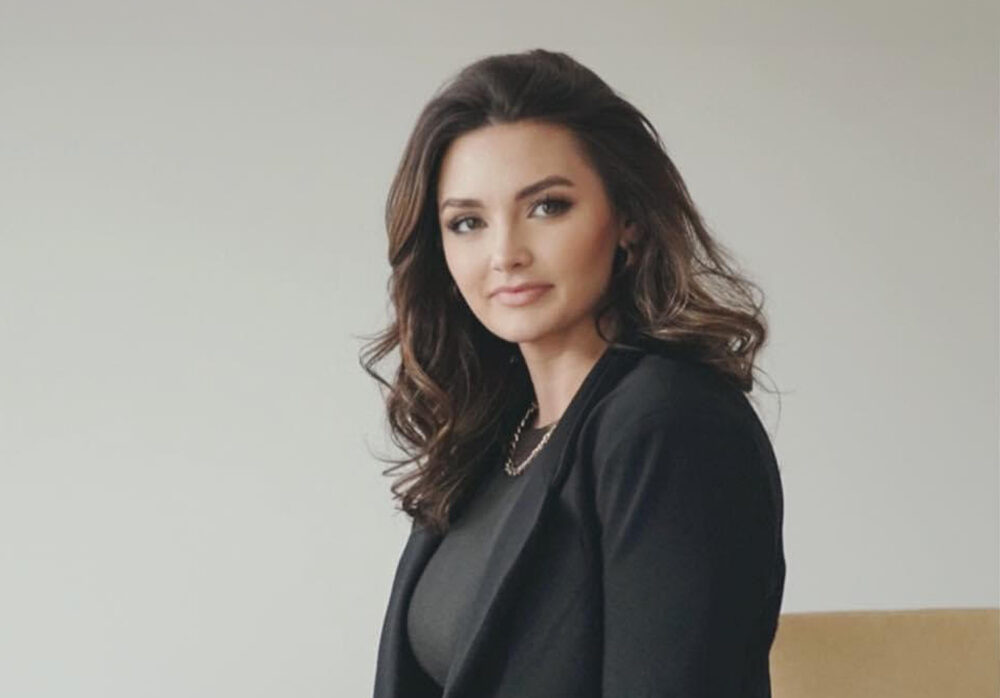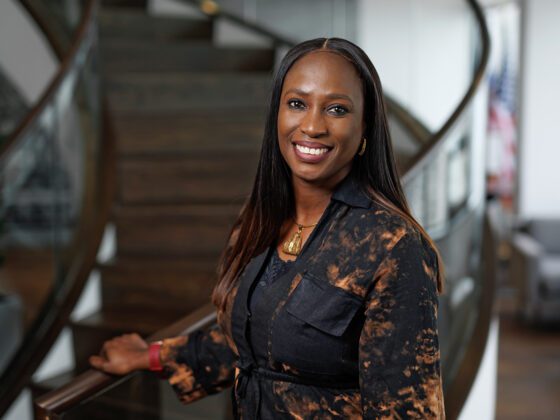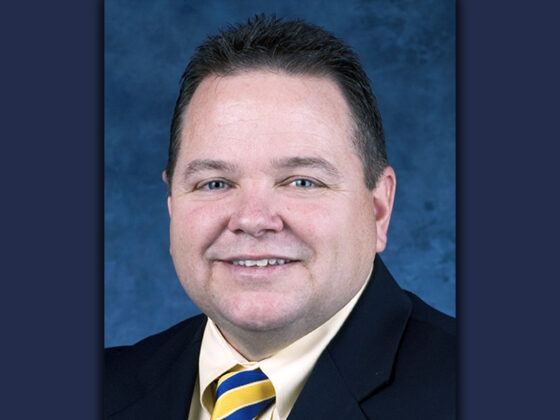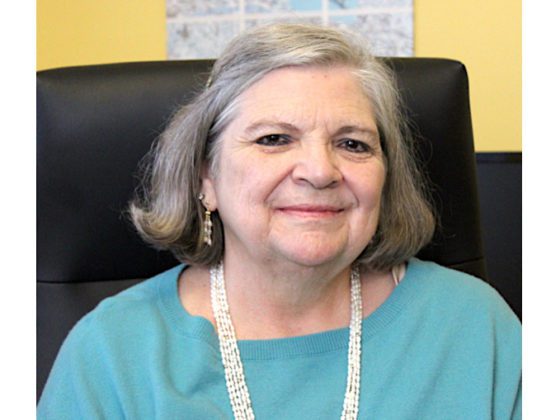Rachel Folmar’s career journey has been anything but traditional. Folmar’s tenacity and resilience helped her overcome homelessness in high school to forging a career path for herself in the corporate world where she is now Director of HR at U.S. Silica Company in Texas. When Folmar was promoted to her current position, she was encouraged to apply for Darden Executive Education & Lifelong Learning’s The Executive Program (TEP), the most comprehensive advanced management program for top leaders. After graduating from TEP in 2023, she wasn’t ready for her journey at Darden to be over and was inspired to apply for Darden’s Executive MBA Program. She is now in pursuit of earning her Executive MBA degree and is determined to show other women like her what’s possible. We sat down with Folmar to learn more about her inspiring journey.
Can you share more about your career journey?
I’m going to start by going back — in high school, I became homeless, not by my own choice, and couch surfed my way through high school. I graduated, but I didn’t have access to many options after school and I decided to go to cosmetology school. I attended school in California and after finding out I was pregnant with my daughter, who’s now 16, I decided to move back home to Colorado.
I worked several different jobs from being a waitress to cleaning houses to becoming a teller at a bank. Despite the teller job being stable, it just wasn’t enough for me. I ended up landing a job at a local casino in our community in their marketing department. I loved how fast paced it was and planning all of their events. However, with two young kids at home and the late nights and holiday work, I decided to pursue something else.
I transitioned to become an executive assistant at a privately held, moderate sized company and worked directly for the president and vice president. They were wonderful to work for and eventually there was a job opening in HR. The vice president offered it to me despite not having any experience because he knew I had a willingness to learn and strong work ethic. That’s how I got into the HR world, and I worked my way up to HR manager. After working at that company for a while, I got laid off.
I made a couple of different career moves and then ended up in Midland, Texas, and started with U.S. Silica Company as a Regional HR manager. I’ve been here for about six years now and back in 2020 was promoted to my current role as Director of HR and relocated to Houston.
How did you end up coming to Darden and attending TEP?
With the promotion came a new boss, Lynnette Crowder (EMBA ’10), who received her Executive MBA from Darden. She was a wonderful mentor to me. As we worked together and she got to know me, she mentioned that she wanted me on her succession plan. However, since I didn’t have my undergraduate degree, she suggested that we find a way to show that I’m well-rounded and told me about TEP. I thought the program sounded great, but I didn’t think I would be accepted. Lynnette encouraged me to still apply and wrote me a letter of recommendation. I was accepted to the program and immediately imposter syndrome set in, but I’m so happy that I pursued the opportunity.
Darden does something where they dive into this deeper understanding of what it means to be a leader. It’s the most important thing I’ve learned because as leaders we’re raising future leaders. We have an opportunity to help shape who they become and what our world becomes.
What were your expectations coming into TEP and did it meet those expectations?
Coming into the program, I thought I would just gain some more insight, like business and finance acumen. I thought it would be about gaining tangible and tactical skills and that the program would be very quantitative. Fast forward to the first day of my TEP experience and the classroom was very conversational. I had obviously never been exposed to the case study method and the whole experience just evolved from that day. Our cohort felt comfortable with each other to have organic and raw conversations around any topic – finance, strategy – and every single time they were inspiring conversations.
When the first two-week cohort meeting in Charlottesville was over, I was devastated because my cohort had the most incredible people and the professors are amazing. TEP far exceeded any expectations that I had walking into it. I feel like what I walked away with was this holistic experience. There were people in the program from all over the world – Japan, Korea, Nigeria, Argentina – and their perspectives and culture that they brought to the experience were invaluable.
Do you have any specific memorable moments from TEP, inside or outside of the classroom?
Absolutely. It was the first time I played pickleball. It was the first time ever visiting Washington, D.C. I also have incredible memories with different faculty members.
I remember having a side conversation with Venkat (Professor Sankaran Venkataraman) and he told me I was a really deep thinker. I think it’s the best compliment I’ve ever received in my life, especially coming from someone like him. I remember Elena (Professor Elena Loutskina) setting the expectation for the women in the cohort to be ourselves and not back down. It was inspiring to hear from her that my voice mattered. Greg (Professor Greg Fairchild) was also fantastic.
I specifically remember the final class that Venkat taught with the Disney case. I remember at the end of class, everyone’s jaws were on the floor after going through that case. I would give anything to go through that class and that case again.
How did the TEP experience lead you to pursue your Executive MBA (EMBA) at Darden?
There were a few different things. The first thing was that I didn’t want my Darden experience to be over after TEP. It just didn’t feel right, but my intuition was telling me there was no way I could ever get into an MBA program without an undergraduate degree. I had a conversation with Elena, and she told me that my diversity of thought is so needed in any MBA program and that if I was interested in attending Darden then it’s something I should pursue. I also spoke with Venkat and Greg who said they would help support me.
I met with admissions, submitted my application and ended up getting in. I’m so glad that I did apply and that I’m with this cohort of leaders. It’s been an amazing journey to get here. Some days I sit in the classroom and look out at the Capitol and have to pinch myself that this is where I am. I never thought 15, 10 or even 5 years ago that this is where I would be. To all the people that raised their hand on my behalf, know how meaningful that was to me.
You’re now in your second semester of your first year. What has your EMBA experience been like for you?
I had the same kind of imposter syndrome that I had walking into TEP. I didn’t know what to expect. However, how the case study method is taught in TEP is the exact same in the EMBA program. There have been a lot of great moments, and one that comes to mind is from when I first arrived in Charlottesville last August. One of the professors said, “It’s your responsibility as leaders to be vulnerable. Therefore, you create a sense of belonging for your team because if you’re vulnerable, you give them permission to also be vulnerable.” I wrote that down because I haven’t been able to figure out just how much of my story I should share. I often feel like an outcast, whether it’s at school or work, because I didn’t take the trajectory most people have taken. However, hearing that has encouraged me to be more vulnerable at work and school and at home.
Darden does something where they dive into this deeper understanding of what it means to be a leader. It’s sometimes considered intangible, but I think it’s the most important thing I’ve learned because as leaders we’re raising future leaders. We have an opportunity to help shape who they become and what our world becomes. It’s been one of the most challenging things I’ve done in my life, but also extremely rewarding.
Where are you hoping to go next now that you’ve graduated from TEP and are in your EMBA program?
I certainly want to grow and would love to grow with my company. I’m working towards a VP title that I would love to earn one day. But also, I want to take what I’ve learned through Darden and give it back to women that were like me. Whether it’s partnering with a nonprofit organization or even starting one. When I was in my late teens and early ‘20s, I didn’t know what my options were and what I needed to do. I didn’t know there was this whole world out there where really you could do anything. I want to empower other women, especially single moms or women who come from backgrounds like mine and show them what’s possible, even if you don’t have a degree. That’s what I’m truly passionate about – giving somebody else everything that I’ve been given through my journey.




